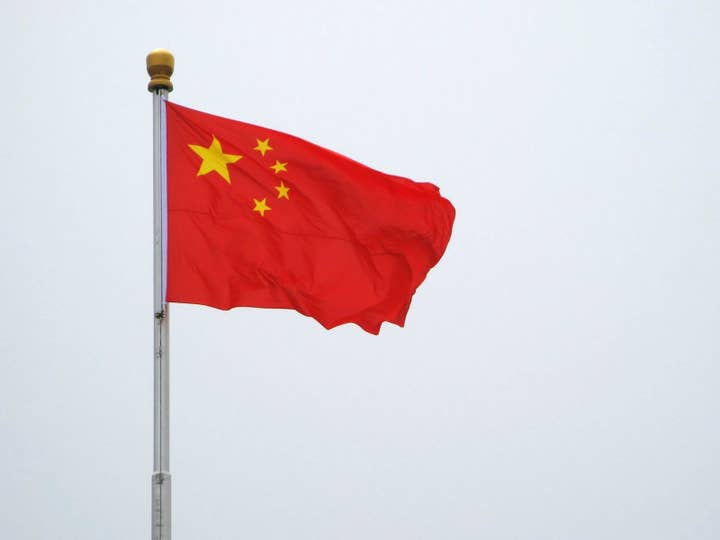An insider's perspective on China
Apptutti's Daniel Camilo discusses the disparity between perception and reality in the world's most regulated games market
From the outside, the Chinese games market may appear obtuse and impenetrable; despite being the largest mobile market in the world, it's burdened by endless regulations which create challenges and roadblocks to developers.
Shenzhen-based Daniel Camilo is the business developer for Chinese publishing specialist Apptutti, says the outsider's perception of China is wildly different from the day-to-day reality of living and working in the region.
"A lot of people, I feel, still think China is like North Korea... That's not at all the case," he tells GamesIndustry.biz. "China is very modern, people are very aware of modern pop culture references. Even though there are restrictions on the internet, people can still access everything."

The Nintendo Switch is a good example of this. An official release for the console was announced in April last year, and arrived in December to sell 50,000 units on launch day -- not a terribly high number for a country with 1.3 billion people and a heavily ingrained gaming culture. That said, it's also not a surprise when considering it launched with just New Super Mario Bros. U Deluxe available on the official Nintendo eShop.
However, Camilo says the low early sales numbers also resulted from how popular the unsanctioned Switch already was in China.
"With the Switch, it already exists in China. That's the thing about what's real and what's in regulation, so there are probably millions in China. You saw them everywhere before it was launched, because you can easily buy it online [through Taobao]."
Owned by Alibaba, Taobao is the defacto online storefront for Chinese consumers, "where people can buy anything," Camilo says -- even products that haven't been officially released or licensed in the region.
"So the thing about the official Switch is, any consumer that is even slightly well-informed about the situation would not choose to buy an officially released Switch, because it is so constrained, especially on the digital side. The console can run foreign [physical] games, but on the eShop there is only one game available, and that probably won't change for a while."
The Chinese market is, Camilo suggests, "one of the freest" despite being so ostensibly restricted. For products like the Nintendo Switch, this can create a warped perception of how popular the console is in China, and means the officially licensed version is unlikely to perform well.
"A lot of people, I feel, still think China is like North Korea... That's not at all the case"
"I don't think it will be successful, but it paves the way and creates a precedent for the future. One that has already happened before when Nintendo had the Chinese version of the N64 [under the iQue branding]; it also had the DS before and even the Game Boy Advance before that....
"So just because Tencent is partnering with Nintendo for the Switch, it doesn't mean that once the Switch 2 or whatever comes out, that they will still have that deal. So maybe they will have to make another deal and start again from scratch. And in the meantime, that will be totally inconsequential because most gamers don't care, they can just get whatever comes out."
Other official lines, like the Healthy China 2030, reinforce this incongruity. Revealed in January, the mental health initiative includes a crackdown on violent games, pornographic content, and gambling. However, as Camilo notes, it shouldn't always be taken at face value.
"The thing about China -- this is just my perspective, and when I say China I mean the government and regulators -- they keep doing these long-term goals for everything. So you always need to take that with a pinch of salt. Because things just change very quickly and very unpredictably.
"So now they might be saying that, and in 2025 maybe it's they 'forgot' about it, maybe. It's one of those things that creates a lot of headlines outside of China. But within China, because people implicitly understand how things work, people don't really care.
"You always need to take that with a pinch of salt. Because things just change very quickly and very unpredictably"
"There's China -- the official China -- the one you read about and the regulations, and then the in-practice China, and what happens with daily life. Just because it is in the regulations, it is not necessarily enforced, unless there are extreme cases."
It raises the question though: what is the point of all this regulation if it's so widely bypassed? Camilo says the laws are "very ambiguous and very vague." There's a lot of room for interpretation, he adds, and that's often used to "create loopholes for many things, not just gaming."
"[Taobao is] as regulated as anything in China. [But] you can buy anything on there... I guess they could enforce it if they wanted to, but they would have to close down hundreds of stores. It's not just bad for business, but I think it would break the harmony of society because it would upset people, and they just don't see a point in upsetting people in that particular context."
This disparity between perception and the actual day-to-day may create unseen opportunities that go under the radar of governmental censorship, but it doesn't always make things any easier for developers or publishers.
"[The Chinese market is] very volatile, very unpredictable, very hard to make long-term plans if you're a company or a publisher mostly, but also if you're a developer because you cannot predict the wise decisions of the government when it comes to regulation, so things might change very suddenly," says Camilo.
That volatility is evidenced by license approval freeze in 2018, which lasted for around nine months and saw the Chinese mobile market growth slow to a crawl. There is still an element of uncertainty in China, but as Camilo says, that uncertainty is always there.
"Things seem to be okay now. They opened up the processing. It's mostly about the publishing license and IP certifications. That's the thing that games need to be published in China, and that's what was halted during that period. Now they have resumed, it's always kind of challenging I guess, especially for foreign games. But now that it's going again, it's back to normal both on mobile and [console]."

